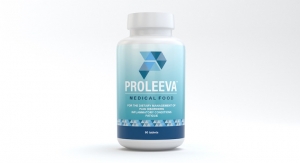11.23.16
A new report published online by JAMA Oncology examined whether levels of a blood biomarker of vitamin D—25-hydroxyvitamin D (250HD)—at the time of breast cancer diagnosis were associated with survival.
Song Yao, PhD, of the Roswell Park Cancer Institute, Buffalo, NY, and coauthors analyzed data from a large group of breast cancer survivors. They focused on prognosis and outcomes in 1,666 women participating in the Pathways Study, a group of women with breast cancer established at Kaiser Permanente Northern California.
In the study, higher 250HD blood levels were associated with better overall survival. In premenopausal women, the association of higher blood levels of 250HD and overall survival was stronger and there were associations with other specific measures of survival.
The study reports lower 250HD blood concentrations in women with advanced-stage tumors and the lowest 250HD concentrations in premenopausal women with triple-negative cancer.
The authors noted their findings were consistent with other literature suggesting better overall survival among patients with higher 250HD levels. They advised caution in interpreting their findings because of other potential mitigating factors. The study's design also cannot establish causality.
"Our findings provide compelling observational evidence for inverse associations between vitamin D levels and risk of breast cancer progression and death," the study concluded.
Song Yao, PhD, of the Roswell Park Cancer Institute, Buffalo, NY, and coauthors analyzed data from a large group of breast cancer survivors. They focused on prognosis and outcomes in 1,666 women participating in the Pathways Study, a group of women with breast cancer established at Kaiser Permanente Northern California.
In the study, higher 250HD blood levels were associated with better overall survival. In premenopausal women, the association of higher blood levels of 250HD and overall survival was stronger and there were associations with other specific measures of survival.
The study reports lower 250HD blood concentrations in women with advanced-stage tumors and the lowest 250HD concentrations in premenopausal women with triple-negative cancer.
The authors noted their findings were consistent with other literature suggesting better overall survival among patients with higher 250HD levels. They advised caution in interpreting their findings because of other potential mitigating factors. The study's design also cannot establish causality.
"Our findings provide compelling observational evidence for inverse associations between vitamin D levels and risk of breast cancer progression and death," the study concluded.

























